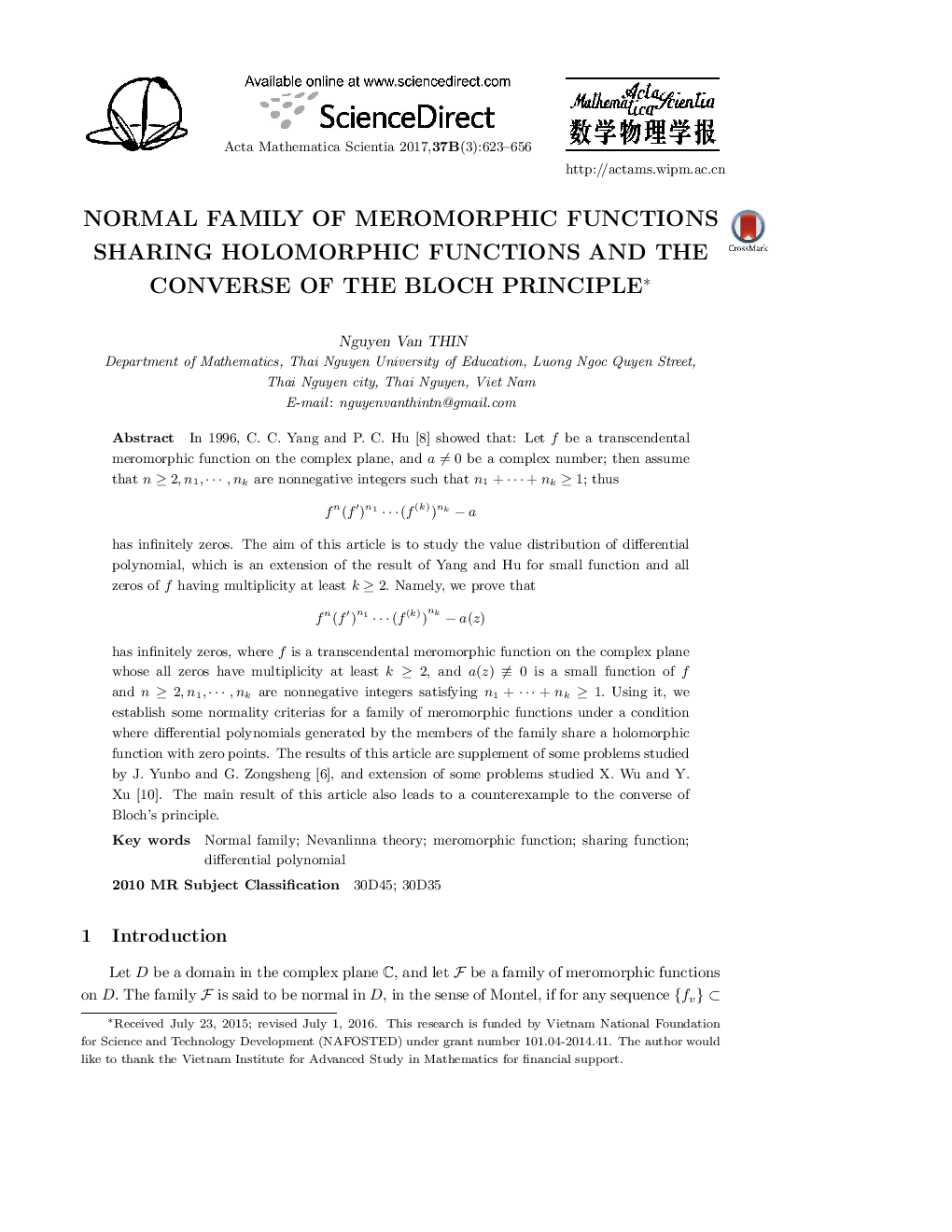| Article ID | Journal | Published Year | Pages | File Type |
|---|---|---|---|---|
| 8904528 | Acta Mathematica Scientia | 2017 | 34 Pages |
Abstract
In 1996, C. C. Yang and P. C. Hu [8] showed that: Let f be a transcendental meromorphic function on the complex plane, and a â 0 be a complex number; then assume that n ⥠2, n1, â¦,nk are nonnegative integers such that
n1+â¯+nkâ¥1; thus
fn(fâ²)n1â¯(f(k))nkâahas infinitely zeros. The aim of this article is to study the value distribution of differential polynomial, which is an extension of the result of Yang and Hu for small function and all zeros of f having multiplicity at least k ⥠2. Namely, we prove that
fn(fâ²)n1â¯(f(k))nkâa(z) has infinitely zeros, where f is a transcendental meromorphic function on the complex plane whose all zeros have multiplicity at least k ⥠2, and a(z) â¡ 0 is a small function of f and n ⥠2, n1,â¦,nk are nonnegative integers satisfying n1+â¦+ nk ⥠1. Using it, we establish some normality criterias for a family of meromorphic functions under a condition where differential polynomials generated by the members of the family share a holomorphic function with zero points. The results of this article are supplement of some problems studied by J. Yunbo and G. Zongsheng [6], and extension of some problems studied X. Wu and Y. Xu [10]. The main result of this article also leads to a counterexample to the converse of Bloch's principle.
Related Topics
Physical Sciences and Engineering
Mathematics
Mathematics (General)
Authors
Nguyen Van THIN,
